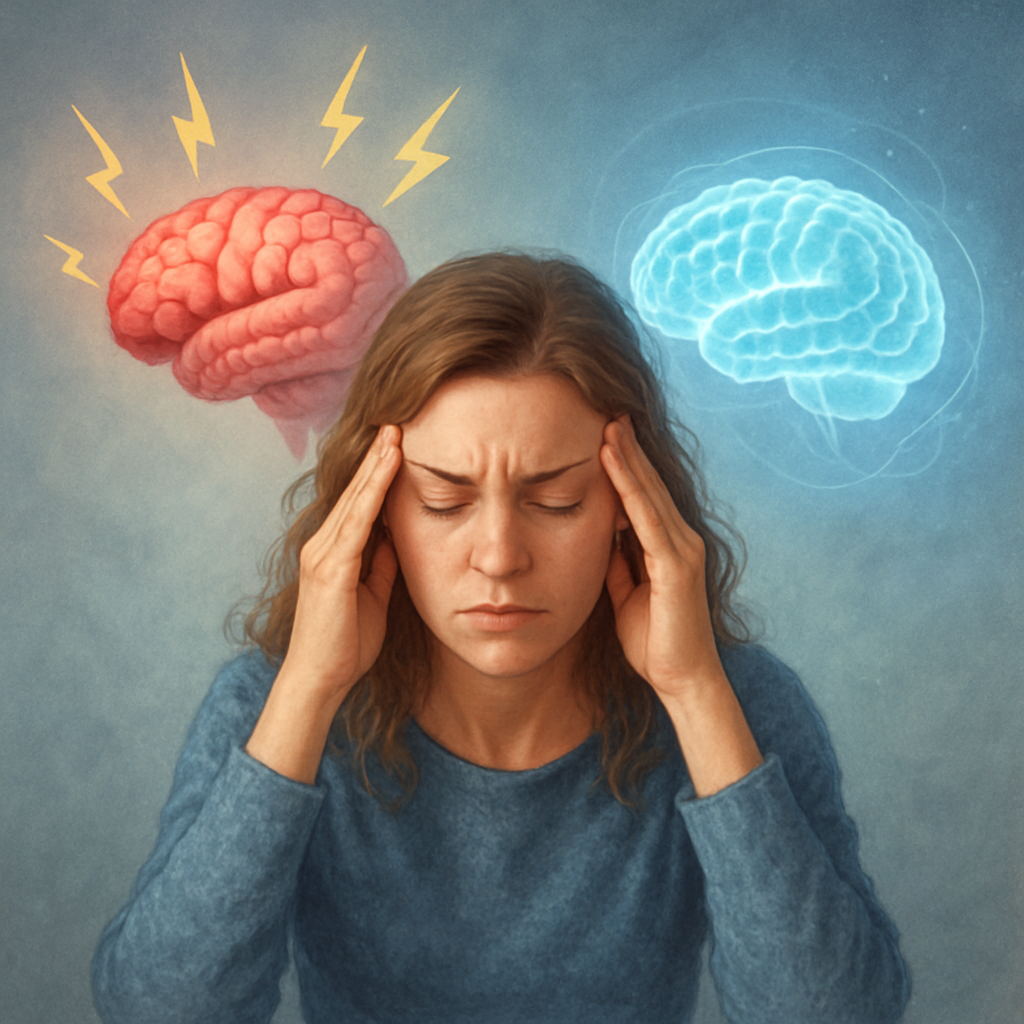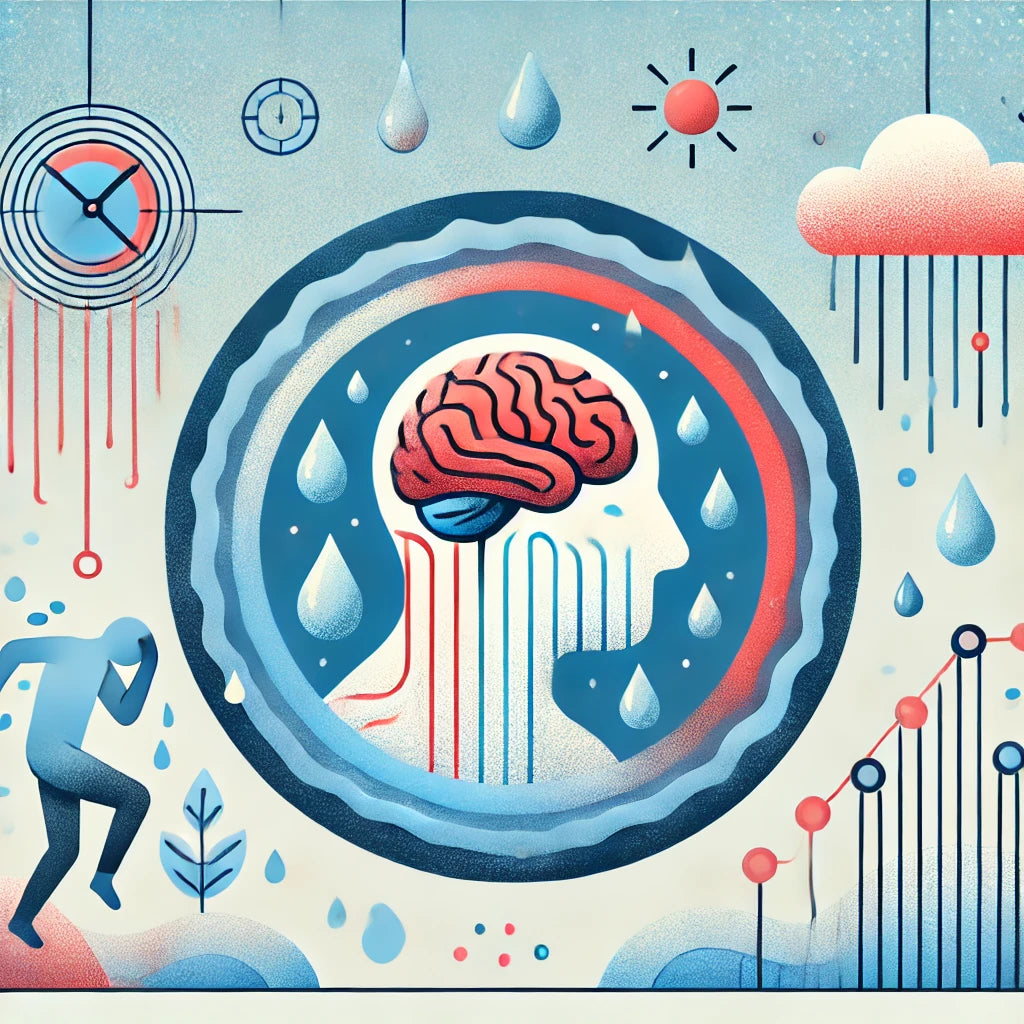News — anxiety
How Stress Affects the Brain and Your Mental Health
adaptogens amygdala and fear anxiety BDNF brain fog brain supplements chronic stress cortisol cortisol balance depression and stress hippocampus shrinkage LongLifeNutri memory and stress mental health neuroplasticity stress and the brain stress recovery stress relief remedies stress relief supplements stress symptoms
Stress is an unavoidable part of modern life — but when it becomes chronic, it can wreak havoc on your brain and emotional well-being. While a certain amount of stress can motivate you and sharpen focus, too much for too long triggers chemical changes in the brain that affect memory, mood, and even your physical health. The result? You may feel anxious, forgetful, irritable, or overwhelmed — and that’s just the beginning.
Understanding how stress affects the brain is crucial for protecting your mental health. The brain-body connection is real, and stress doesn’t just live in your mind — it shapes how your brain functions on a structural and hormonal level. In this article, we’ll explore the neurological impact of stress, the symptoms it can cause, and actionable ways to manage it before it takes a toll on your mental wellness.
Adjustment Disorder vs. Depression: Understanding the Differences
adjustment disorder anxiety coping mechanisms depression emotional well-being mental health mood disorders psychology stress therapy
Life is full of challenges, and at times, significant stressors can affect our mental health. However, not all emotional struggles indicate clinical depression. Some individuals experience **adjustment disorder**, a temporary condition triggered by a stressful life event, while others may develop **major depressive disorder (MDD)**, a long-term mental health condition.
Because the symptoms of adjustment disorder and depression can overlap, it’s crucial to understand their differences. Recognizing these distinctions can lead to appropriate treatment and improved mental well-being. This article will explore the causes, symptoms, diagnosis, and treatment options for both conditions.
Harnessing the Power of Cat's Claw: A Complementary Therapy
anti-inflammatory antioxidant anxiety arthritis cat's claw complementary therapy depression fibromyalgia health wellness immune system inflammation natural remedy pain relief stress relief
Historically, the use of cat's claw dates back thousands of years, with indigenous tribes of the Amazon rainforest utilizing it for various medicinal purposes. The vine first caught the attention of Western medicine in the 1970s when researchers began exploring its bioactive compounds and potential health benefits. Today, it remains a popular natural remedy, often consumed in teas, tinctures, and supplements.
Breaking Free from the Cycle of Hyperhidrosis and Anxiety
anxiety anxiety management Botox for hyperhidrosis breaking the cycle of sweating cognitive behavioral therapy excessive sweating hyperhidrosis hyperhidrosis solutions hyperhidrosis treatment managing hyperhidrosis mental health mindfulness for anxiety social anxiety stress and sweating
Hyperhidrosis, or excessive sweating, is a condition that affects millions of people worldwide. While sweating is a normal bodily function, those with hyperhidrosis experience it to an extreme degree, often leading to discomfort, embarrassment, and frustration. What makes this condition even more challenging is its close link to anxiety. Many individuals with hyperhidrosis develop anxiety about their condition, fearing social situations, interviews, or even simple day-to-day activities where their sweating might be noticed. This anxiety, in turn, can trigger even more sweating, creating a vicious cycle that’s difficult to break.
Understanding the connection between hyperhidrosis and anxiety is key to managing both conditions. By addressing the physical symptoms of excessive sweating and finding ways to cope with the psychological toll, it’s possible to regain control over your life. In this guide, we’ll explore what causes hyperhidrosis, how anxiety exacerbates the problem, and the steps you can take to break free from this cycle.




